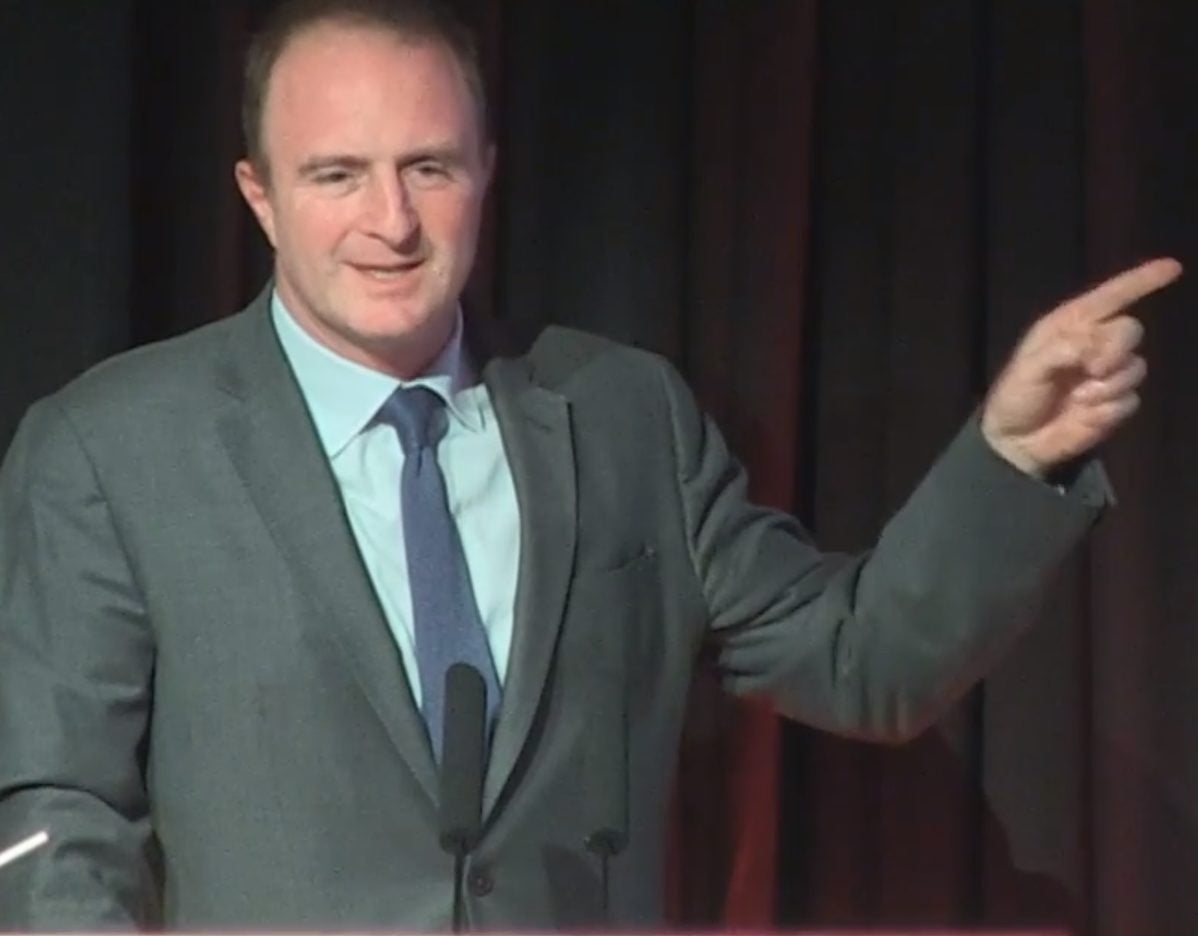
Former BBC News director James Harding has said he left the corporation in part because he wanted to be free of its impartiality guidelines and return to the more partisan world of print journalism.
“When I decided to leave the BBC it was very clear to me that the one thing we couldn’t do was, day-in and day-out, provide a point of view, he said. “I wanted to get back to part of the world of newspaper journalism which enables you to have a point of view.”
Delivering the annual Hugh Cudlipp Lecture, hosted by the London Press Club last night, Harding also said technology was “damaging” democracy and that tech giants such as Facebook Google would have to “set new standards by which they operate” or face regulation.
He told industry peers assembled at the British Library that “fake news” was an “overstated problem” and that it “should be like spam in the early days of the internet – a nuisance but fixable”.
In the Q&A that followed, Press Gazette asked Harding if he had felt stymied by the strict impartiality guidelines enforced at the BBC under Ofcom and whether this had contributed to his decision to leave at the start of the year.
Harding said: “I’m a big believer that the fundamental task we have got is to investigate and report the world in front of us and that when we really have an impact is when we do that investigative work and we tell stories that otherwise would go untold. That is without question the driving force of great journalism.
“I think that there also is a world of journalism that goes back to the 19th even 18th century around pamphleteering, around the development of ideas.
“And it seems to me that if you look at the world and think there are not sufficient new ideas for tackling problems that transcend party politics then I think there is also a purpose to journalism that is constructive, that examines ideas and that provides a forum a place where those ideas get debated and does come to have an informed opinion.
“When I decided to leave the BBC it was very clear to me that the one thing we couldn’t do was, day-in and day-out, provide a point of view. That is not what we are there to do.
“Our independence and impartiality our accuracy is core to what we do. I wanted to get back to part of the world of newspaper journalism which enables you to have a point of view.”
Harding also used his lecture to claim that the BBC needed more investment to expand its World News TV Service to complement the BBC World Service, which now provides news in more than 40 languages worldwide following a £289m Government funding boost last year.
“In a Brexit world, it speaks volumes for who we are and what we stand for,” he said.
Harding also said there needed to be more “slow news” in building “safe environments to inform and entertain on the internet”.
He said: “I recognise the imperative of speed in news – being first, breaking the news. But so much of the work that has really counted has, in my experience, taken time.
“When I was at The Times, whether it was investigating child sex grooming in Rotherham or Rochdale, reporting on the family courts, campaigning on adoption, pushing for cities fit for cycling or exposing tax scams, it all took time – and it was worth it.
“Slow news – original investigations, thorough analysis, informed opinion – is, I like to think, what more and more people want.”
He added: “Democracy is getting disrupted. What we make of that disruption falls, unusually heavily, on the world of journalism. It couldn’t be a more rewarding or exciting time to be a journalist – or a more consequential one.”
Read James Harding’s full Hugh Cudlipp lecture.
Picture: Daily Mirror/ Screenshot
Email pged@pressgazette.co.uk to point out mistakes, provide story tips or send in a letter for publication on our "Letters Page" blog
